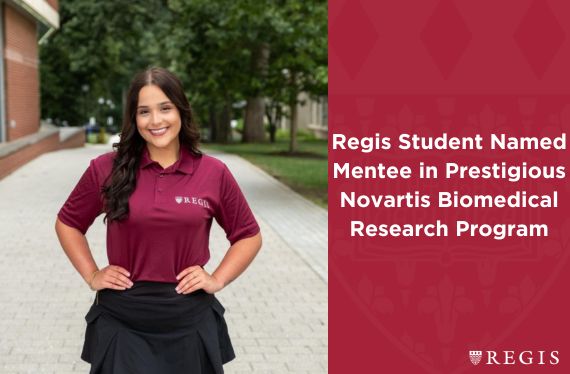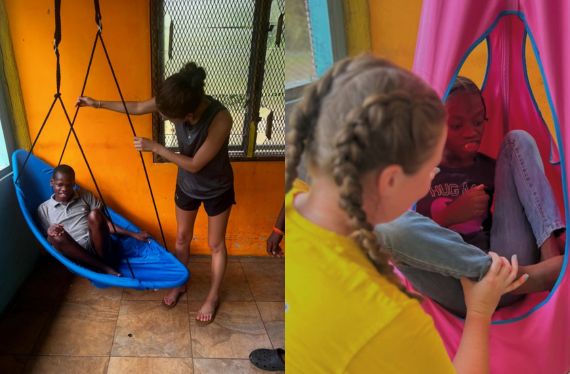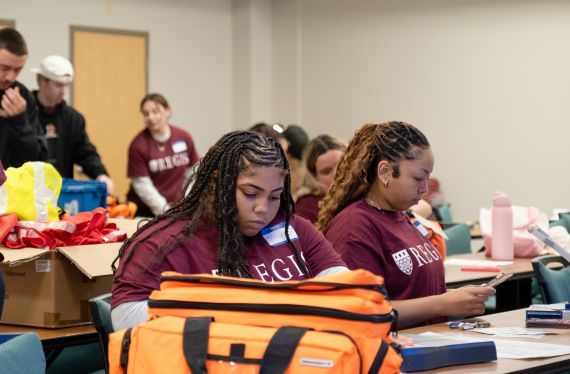These Graduate Students Discovered a Program That Put Them on Track for Careers in Non-Profits and Sports
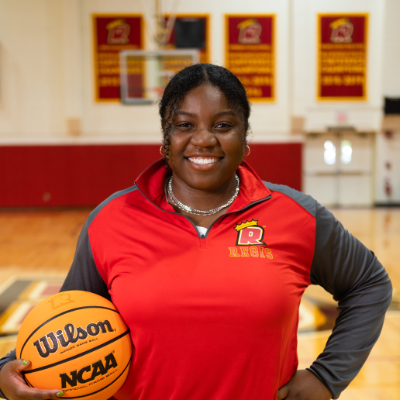 Pondering the financial and time investment a graduate degree requires, Leah Spencer MA ‘23 put it bluntly: “The most important factor for me was being a part of a program that would further me in my career path,” she explained. “This is a two-year commitment, and I didn’t want to get my master’s degree just to say I got it.”
Pondering the financial and time investment a graduate degree requires, Leah Spencer MA ‘23 put it bluntly: “The most important factor for me was being a part of a program that would further me in my career path,” she explained. “This is a two-year commitment, and I didn’t want to get my master’s degree just to say I got it.”
In saying the quiet part out loud, Leah was acknowledging the reality for most graduate students that a successful return on their investment not only requires a quality education but the prospect of doors opening when they complete their degree. For Leah, an assistant coach of the Regis College Women’s Basketball team, communications was a means to an end. One of the main reasons she chose the communications program at Regis over those at larger schools was its sports communication track.
As she pursues her MA in Strategic Communication at Regis College, Leah is confident that her degree will “give me an advantage by furthering my education and expanding my network to help break into the sports industry.”
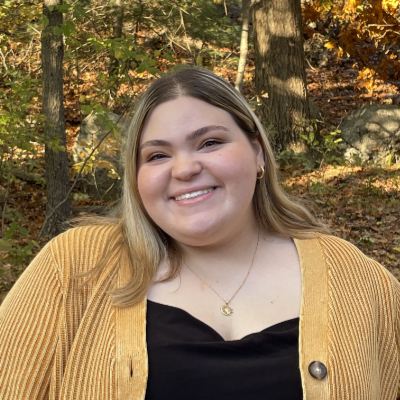 While she was an undergraduate, Alexis Scrima MS ’23 says she “found my love for nonprofit work.” Like Leah, Alexis was initially drawn to Regis largely for its focus, in her case with the nonprofit communication track. “When I was looking into master’s programs in communications, none had that nonprofit specificity I was looking for. It was either communications or nonprofit management.”
While she was an undergraduate, Alexis Scrima MS ’23 says she “found my love for nonprofit work.” Like Leah, Alexis was initially drawn to Regis largely for its focus, in her case with the nonprofit communication track. “When I was looking into master’s programs in communications, none had that nonprofit specificity I was looking for. It was either communications or nonprofit management.”
As an example, Alexis explains, “There were courses specifically on grant writing and crisis communication, two things of which I think are becoming increasingly more important in the nonprofit world, and other programs didn’t have that focus that I was looking for in the course work like Regis did.”
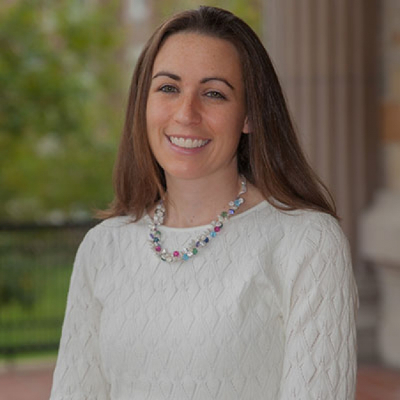 Beyond the specialty tracks, Associate Professor Colleen Malachowski, PhD, director of the MA in Strategic Communication program, finds many students choose the program for the chance to participate in multiple internships for credit. Some also take advantage of Regis Fast Track Programs which enable them to save time and money obtaining dual degrees. The chance to specialize and the size of classes create a personalized experience even in an entirely online format.
Beyond the specialty tracks, Associate Professor Colleen Malachowski, PhD, director of the MA in Strategic Communication program, finds many students choose the program for the chance to participate in multiple internships for credit. Some also take advantage of Regis Fast Track Programs which enable them to save time and money obtaining dual degrees. The chance to specialize and the size of classes create a personalized experience even in an entirely online format.
And Professor Malachowski notes, “Since we are in the School of Business and Communication, our program excels at marketing and communication. With our required courses including journalism and feature writing, we also excel in professional writing.”
For Leah, communications was not always a part of the plan. Originally a Business Management major at a college in Vermont, the self-described obsessive “Law and Order” fan toyed with law, changing her major to Political Science which she thought might be applicable to sports law. During the pandemic, she decided to change course and accepted positions as a graduate assistant and coach at Regis. After meeting with Dr. Malachowski, she realized that the Strategic Communications program was the right fit.
“I know for a fact that I want to pursue a career in sports,” she says. “It’s just about figuring out exactly what that looks like. Being a year into the program and six classes in now, I’ve started to really hone in on what I’m passionate about and what may be next for me. I feel like this program has challenged me and completely changed my perspective on the way I view the sports industry. It’s not an easy industry to step into, but with the right resources and by building relationships with the right people, the opportunities are endless. I feel more confident in my decision to take a leap of faith and pursue my passions wholeheartedly.”
Currently Alumni Relations Coordinator at a college in Boston, Alexis believes she only skimmed the surface of communications in her undergraduate program.
“When I took my first graduate course, I didn’t know if this was right for me or if I could do it, but the professors in this program are truly like no other[s] and I owe most of my success in this program to them. They not only challenged me in my courses, but also made me think more critically about communications in all different aspects connecting to nonprofit communications that I never would have even considered before this program. I have learned so much from this program, which I will carry with me throughout the rest of my career.”
Ready to think strategically about your communications career?

